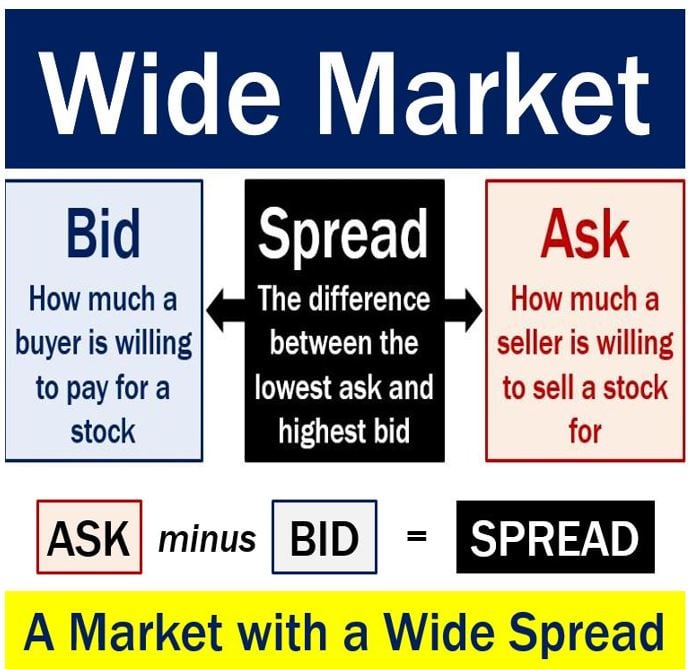A wide market is a market with considerable profit margins or a wide spread. In the world of investments, a wide market is one where there is a relatively large spread between bid and offer prices on some investment products. These types of markets are more commonly found where there is a lower amount of business activity. It is the opposite of a ‘thin’, ‘narrow’, or ‘close’ market.
In a thin market there is a small spread between bid and offer prices. In thin markets there is a great deal of trading activity going on.
A wide market may develop when there is a scarcity of competitive bid and offer prices. Sometimes it may occur when trading has been suspended.
 A wide market is one with a wide spread – where the difference between the ask and bid prices is significant.
A wide market is one with a wide spread – where the difference between the ask and bid prices is significant.
When there is a wide market, some traders say that the market is ‘wide open’.
Sometimes, when market participants and market makers have not yet submitted their bid and offer prices to the market, the ‘spread’ – the difference between bid and offer prices – is wide.
The term bid and offer prices means the same as bid and ask prices.
Many Pink Sheet stocks (penny stocks) and OTC (Over The Counter) Bulletin Boards feature wide market products. When the spread is wide momentum traders and other investors have difficulty in determining which way the market is set to go.
Close vs. wide market
Close markets tend to have a more sought-after set of circumstances for both purchasers and sellers.
In close markets there is a great deal of trading activity, the markets are supported with several market makers – this means that there are better opportunities to make a profit on an investment.
With a wide market, on the other hand, there is a less desirable set of circumstances for investors – they are not so enticed to engage in trades.
When there is a gaping difference between the bid and ask prices, investors feel there is no real incentive to place orders. For investors, the increased bid-to-offer spread acts as a deterrent.
